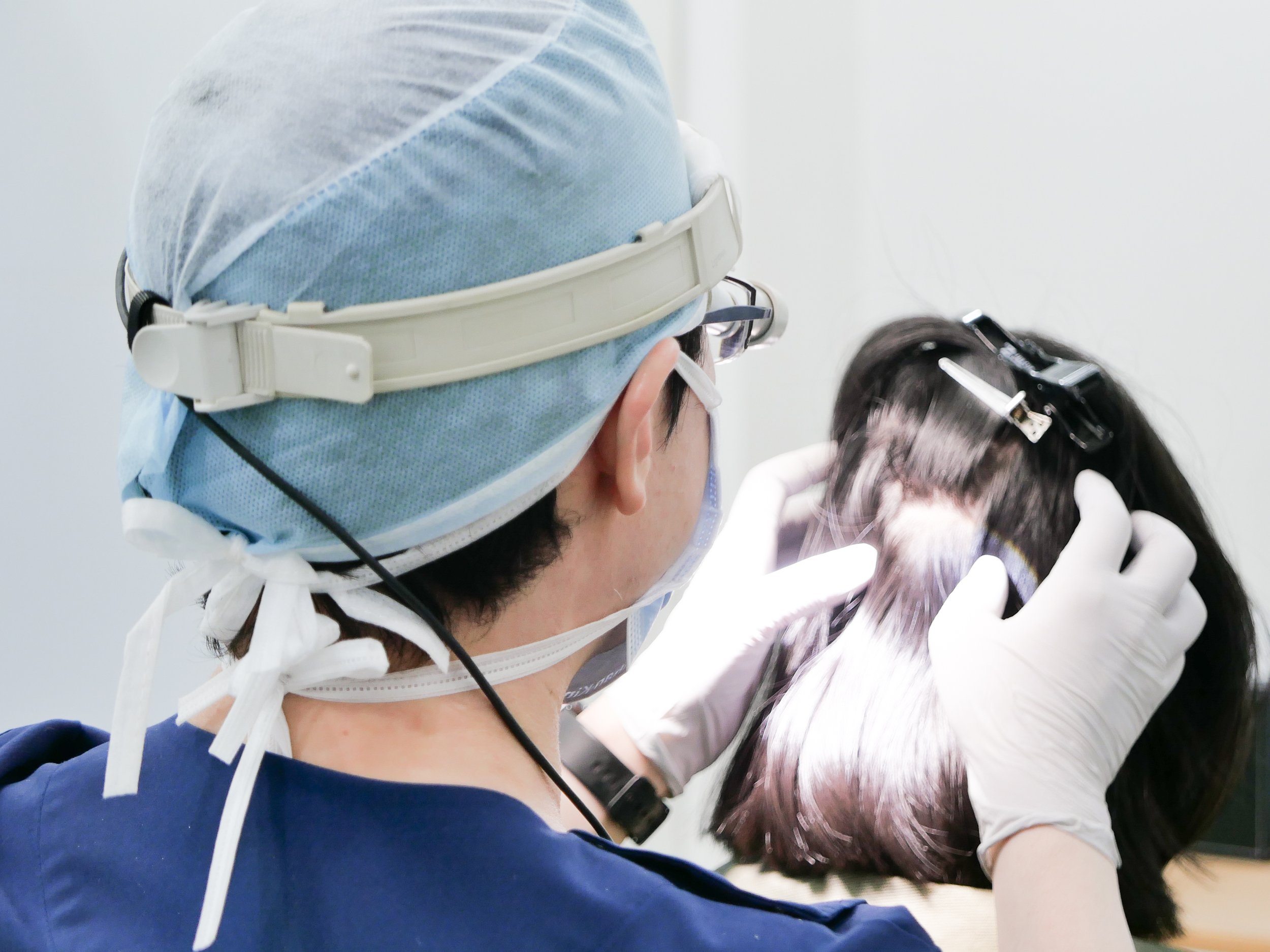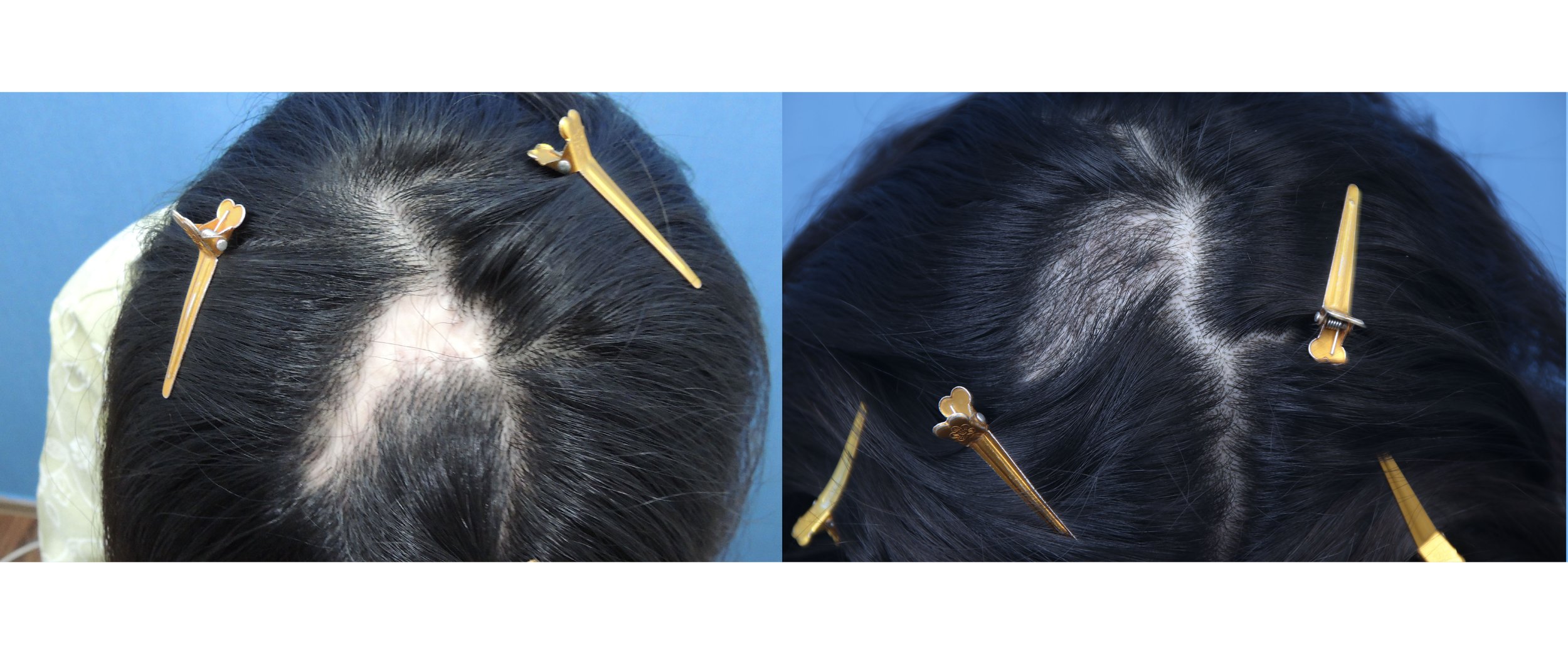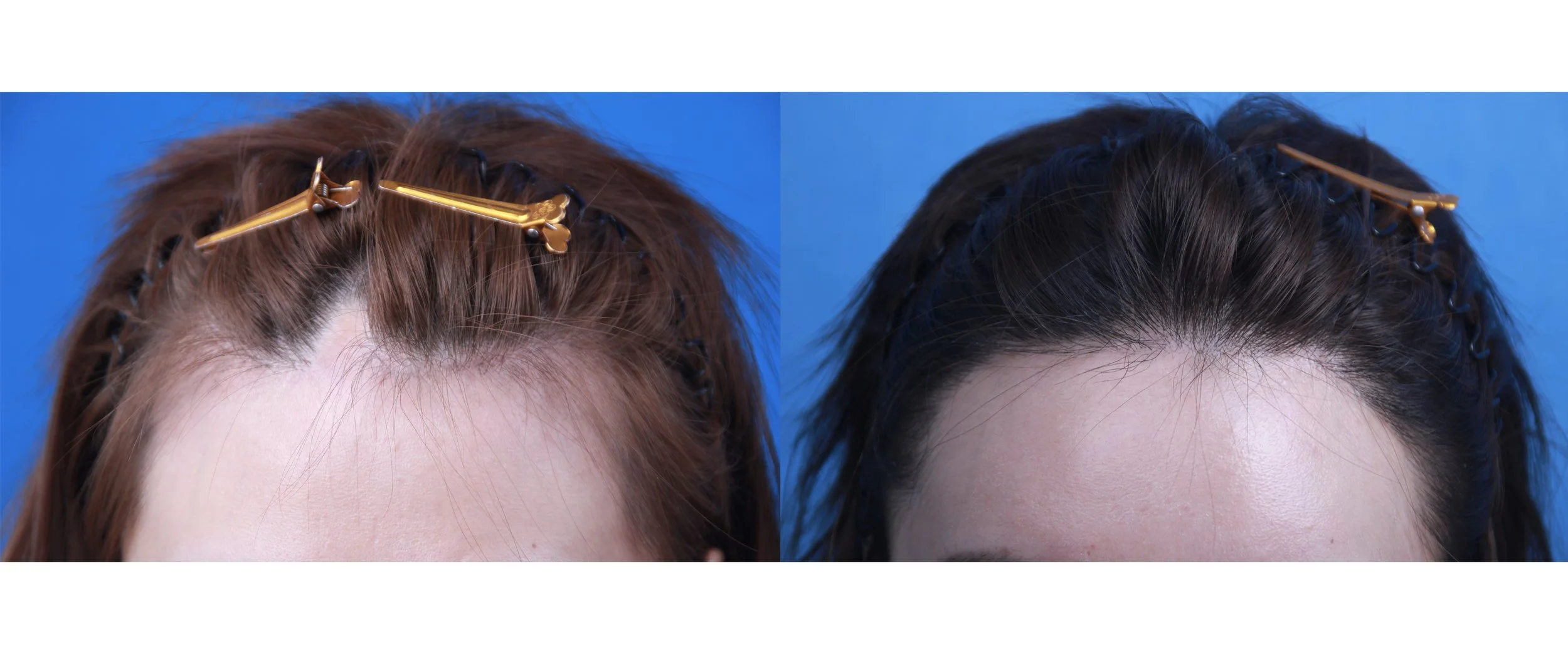
Hair Transplant on Scar
Hair Transplant on Scar Tissue
Scarring alopecia is hair loss due to hair follicle destruction. Hair follicles can be damaged for many reasons, such as accidents, trauma, or incisions from previous surgeries. As damaged hair follicles do not grow back hair, hair transplant can be an option to cover the scar area. While transplanting on scar tissue have many challenges compared to transplanting normal tissues, it is still possible and effective to reach certain goals.
Depending on the scar types, the survival rate of the transplanted hair may differ. Different types of side effects may also occur depending on the condition of the scar. Hair transplant on scar tissues should be carefully examined and diagnosed before the surgery.
Hair transplant on scar is
not recommended for scars from scalp disease,
but is recommended for those who have scar from
Skin injuries
Burns
Incision / marks from medical treatments
Survival Rate for FUE on Scar
Scar tissues are usually thicker and harder than normal tissues and survival rate may be low. Depending on the tissue, survival rate may differ. Scars from surgery incisions are almost similar to normal tissues. However, hypertrophic scars and keloid scars form thick tissues and may lower the survival rate. For this case, Dr. Lee designs lower density to increase the survival rate.
Before and After
-

500grafts, 4months
-

1,200grafts, 1year
-

350grafts, 1year
-

1,000grafts, 1year
-

1,400grafts, 10months
-

900grafts, 9months
FAQ
-
Unless the scar formed from inflammatory disease, it is possible to have FUE hair transplant on old scar tissues.
-
Depending on the amount of hair transplanted surgery duration may differ. Surgery on scar tissue will take about the same as usual FUE hair transplant. If the area is not too big, it will take roughly 2-3 hours.





